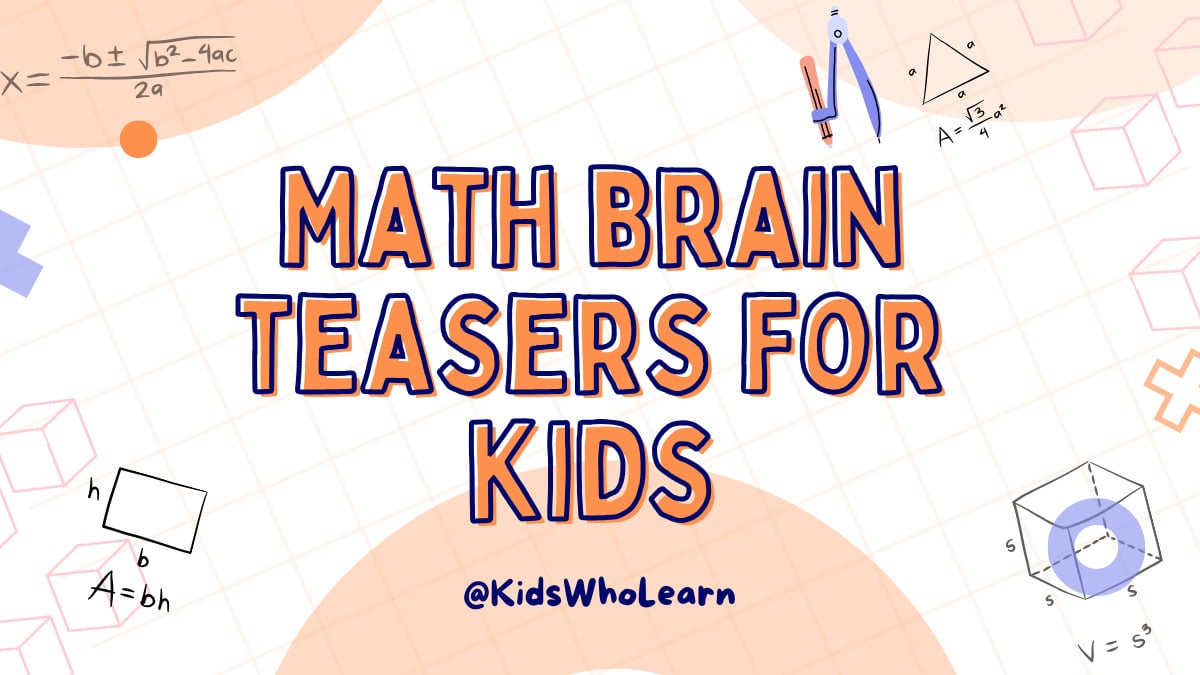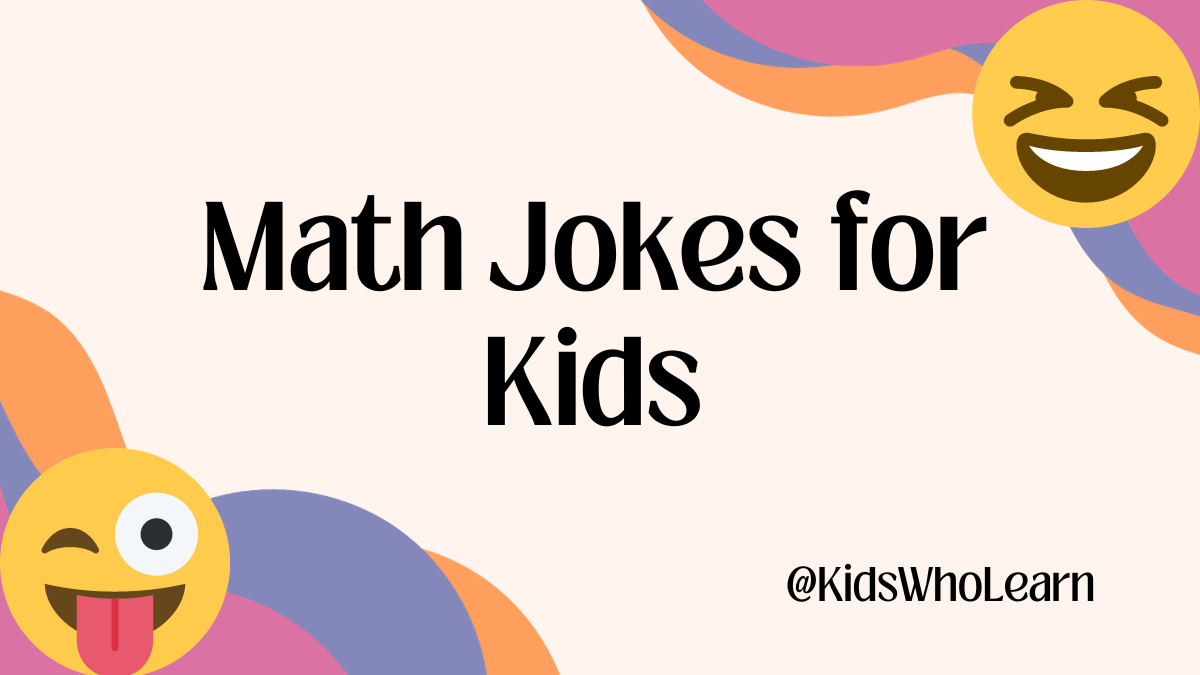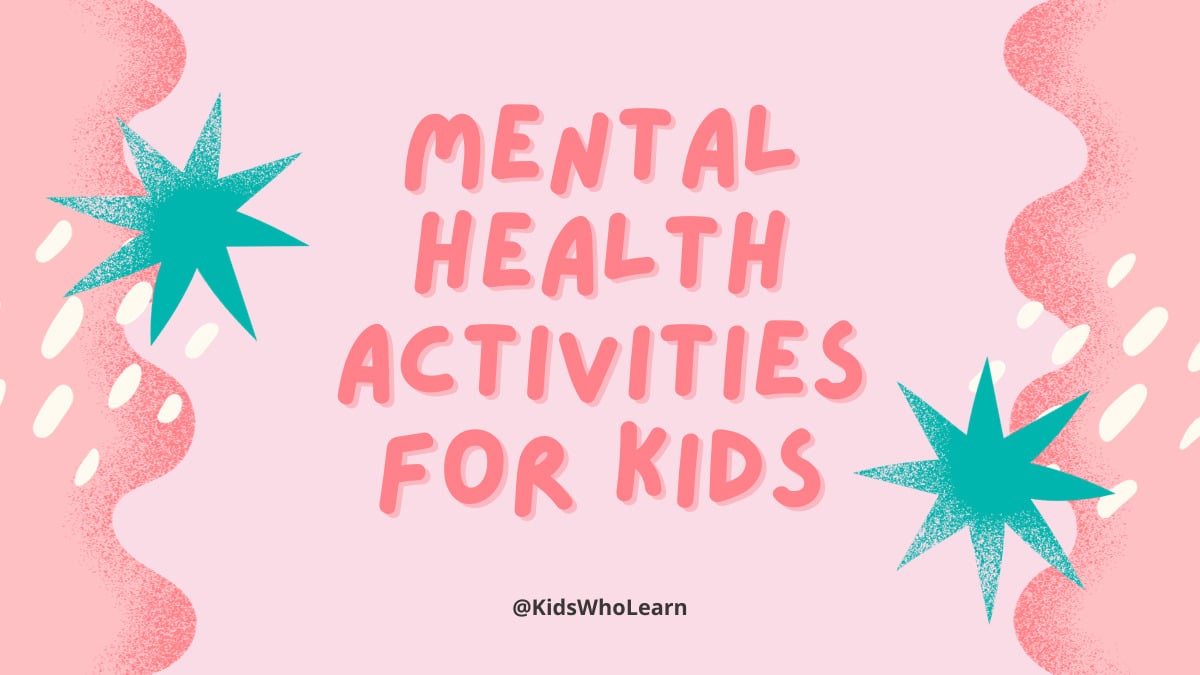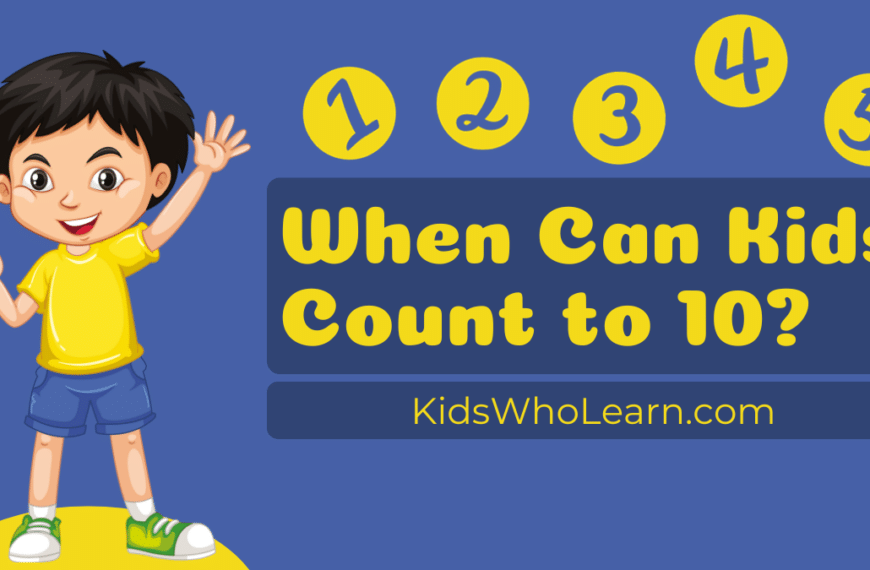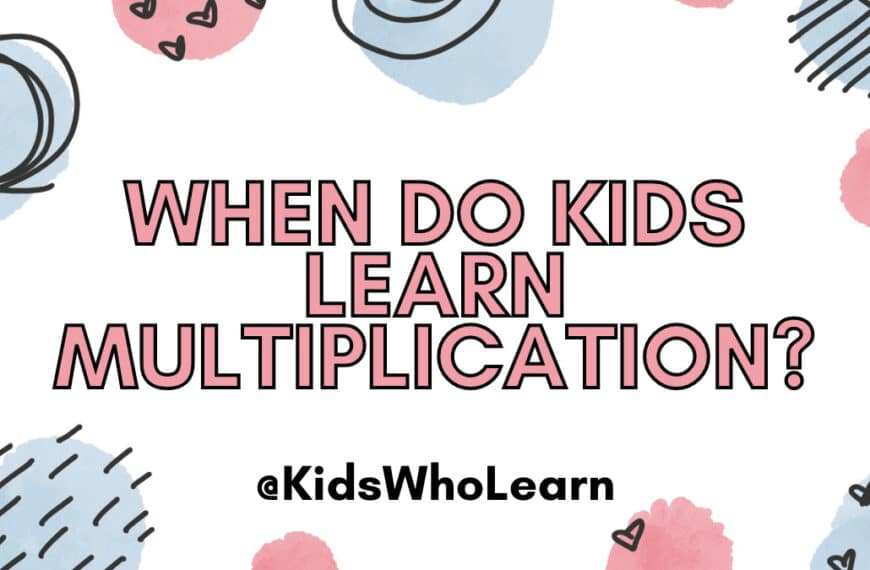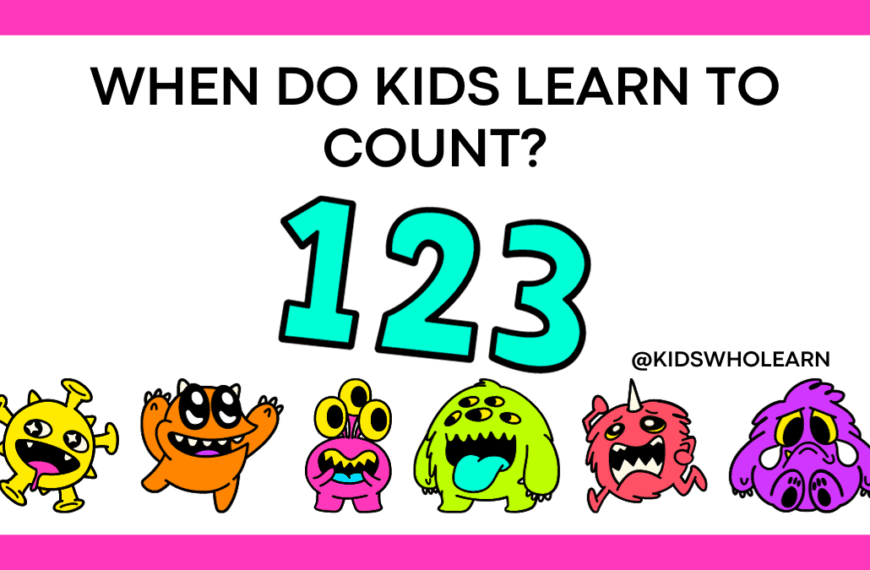Are you looking for a fun way to challenge your child’s math skills? Math brain teasers might be just what you need! These puzzles are designed to engage children’s problem-solving abilities and help them build confidence in their math abilities. Plus, they’re a great way to make learning math more enjoyable.
Math brain teasers come in many different forms, from riddles to logic puzzles to visual challenges. Some might require your child to use addition or subtraction skills, while others might require more advanced concepts like multiplication or geometry. No matter what type of brain teaser your child encounters, they’ll be sure to enjoy the challenge and feel a sense of accomplishment when they solve it.
If you’re looking for a way to make math more exciting and engaging for your child, math brain teasers are a great option. Whether you’re working on basic arithmetic skills or more advanced concepts, there are brain teasers out there that will challenge and delight your child. So why not give them a try and see how much fun math can be?
Understanding Math Brain Teasers
Math brain teasers are a fun and engaging way to help kids develop their problem-solving skills. These puzzles can be challenging, but with practice, anyone can learn to solve them. Here are a few tips to help you understand math brain teasers and improve your problem-solving abilities.
1. Read the problem carefully
It’s important to read the problem carefully and make sure you understand what it’s asking. Sometimes, the wording of the problem can be tricky, so take your time and read it a few times if necessary. Make sure you know what information is given and what you need to find out.
2. Identify the key information
Once you understand the problem, identify the key information you’ll need to solve it. This might include numbers, equations, or other clues. Write down this information so you can refer back to it as you work through the problem.
3. Break the problem down
Sometimes, math brain teasers can seem overwhelming. If this happens, try breaking the problem down into smaller parts. Look for patterns or relationships in the information you have. This can help you see the problem in a different way and make it easier to solve.
4. Try different strategies
There are many different strategies you can use to solve math brain teasers. Try different methods until you find one that works for you. Some common strategies include drawing a picture, making a chart or table, or working backwards from the answer.
5. Practice, practice, practice
The more you practice solving math brain teasers, the easier they will become. Look for puzzles in books or online, and work through them on a regular basis. With practice, you’ll develop your problem-solving skills and be able to solve even the most challenging puzzles.
By following these tips, you can improve your ability to solve math brain teasers and have fun while doing it!
Importance of Math Brain Teasers for Kids
Math brain teasers are a great way to engage kids in learning and improve their problem-solving skills. They help children develop logical thinking and enhance their mathematical abilities. Here are some reasons why math brain teasers are important for kids:
1. Develop Critical Thinking Skills
Math brain teasers challenge kids to think critically and creatively. They require children to analyze and break down complex problems into smaller parts, which helps them develop problem-solving skills. By solving math brain teasers, kids learn to think outside the box and come up with innovative solutions.
2. Enhance Mathematical Abilities
Math brain teasers help kids improve their mathematical abilities. They require children to use mathematical concepts and formulas to solve problems, which reinforces their understanding of math. By solving math brain teasers, kids become more confident in their math skills and are better prepared for future math challenges.
3. Foster a Love for Math
Math brain teasers can be fun and engaging, which helps foster a love for math in kids. By making math enjoyable, kids are more likely to develop a positive attitude towards the subject. This, in turn, can lead to better academic performance and a greater appreciation for math.
In conclusion, math brain teasers are an important tool for helping kids develop critical thinking skills, enhance their mathematical abilities, and foster a love for math. By incorporating math brain teasers into your child’s learning routine, you can help them become better problem solvers and prepare them for future academic challenges.
Types of Math Brain Teasers for Kids
When it comes to math brain teasers for kids, there are several types that can challenge and engage young minds. Here are three main categories of math brain teasers that kids can enjoy:
Number Puzzles
Number puzzles are among the most common and popular types of math brain teasers. These puzzles usually involve numbers and arithmetic operations such as addition, subtraction, multiplication, and division. Some examples of number puzzles include:
- Sudoku: A puzzle game that involves filling a grid with numbers so that each row, column, and block contains all the numbers from 1 to 9.
- Math riddles: These are short puzzles that require kids to use their math skills to solve a problem or answer a question.
- Magic squares: These are grids of numbers where the sum of each row, column, and diagonal is the same.
Geometry Puzzles
Geometry puzzles involve shapes, angles, and spatial reasoning. These puzzles can help kids develop their visual-spatial skills and their ability to think critically. Some examples of geometry puzzles include:
- Tangrams: A puzzle game that involves arranging seven geometric shapes to form a larger shape.
- Geometric puzzles: These are puzzles that require kids to use their knowledge of geometric shapes and angles to solve a problem or answer a question.
- Optical illusions: These are visual puzzles that challenge kids to see beyond what is immediately apparent.
Algebra Puzzles
Algebra puzzles involve equations, variables, and solving for unknowns. These puzzles can help kids develop their problem-solving skills and their ability to think logically. Some examples of algebra puzzles include:
- Equation puzzles: These are puzzles that require kids to solve equations by finding the value of the variable.
- Logic puzzles: These are puzzles that require kids to use deductive reasoning to solve a problem or answer a question.
- Cryptarithms: These are puzzles that involve replacing letters with digits so that a mathematical equation is correct.
Overall, math brain teasers can be a fun and engaging way for kids to develop their math skills and their ability to think critically. By trying out different types of puzzles, kids can find the ones that they enjoy the most and continue to challenge themselves as they learn.
Tips to Solve Math Brain Teasers
Math brain teasers can be tricky, but with a little practice and some helpful tips, you can become a pro at solving them! Here are some tips to keep in mind:
1. Read the Problem Carefully
The most important step in solving any math brain teaser is to read the problem carefully. Make sure you understand what the problem is asking you to do. Look for clues in the problem that can help you figure out what you need to do to solve it.
2. Break the Problem Down
Once you understand what the problem is asking, try breaking it down into smaller parts. Look for patterns or relationships between the numbers and try to simplify the problem as much as possible.
3. Use Logic and Reasoning
Math brain teasers often require you to think outside the box and use logic and reasoning to solve them. Look for clues in the problem that can help you eliminate wrong answers and narrow down your choices.
4. Practice, Practice, Practice
The more you practice solving math brain teasers, the better you will become at it. Look for puzzles and games that challenge your math skills and try to solve them on your own.
5. Don’t Give Up
Remember, solving math brain teasers can be challenging, but don’t give up! Take your time, stay focused, and keep trying until you find the solution.
By following these tips, you can become a master at solving math brain teasers and impress your friends and family with your math skills!
Benefits of Math Brain Teasers for Kids
Math brain teasers are an enjoyable way to help kids develop critical thinking skills while having fun. Here are some of the benefits of math brain teasers for kids:
Improves Problem-Solving Skills
Math brain teasers require kids to use problem-solving skills to find a solution. By solving puzzles and riddles, kids learn to think creatively and logically to find the answer. This skill will help them in their academic and personal lives, as they will be able to approach problems with a clear and practical mindset.
Enhances Memory and Concentration
Math brain teasers require kids to remember information and apply it to solve a problem. As they solve more and more puzzles, their memory and concentration will improve. This skill will help them in their academic lives as they will be able to remember important information and apply it when needed.
Develops Mathematical Thinking
Math brain teasers require kids to use mathematical thinking to find a solution. By solving puzzles and riddles, kids learn to recognize patterns, analyze data, and make connections. This skill will help them in their academic lives as they will be able to understand complex mathematical concepts and solve problems more efficiently.
Boosts Confidence
Math brain teasers provide a sense of accomplishment when kids solve a puzzle or riddle. This sense of accomplishment boosts their confidence and encourages them to take on more challenging puzzles. As they solve more difficult puzzles, their confidence will grow, and they will be motivated to continue learning and improving.
Resources to Find Math Brain Teasers
If you’re looking for math brain teasers for kids, there are many resources available online and offline that can help you find them. Here are a few places to start:
1. Math Websites
There are many websites that offer free math brain teasers for kids of all ages. Some popular ones include:
- Math Playground
- Coolmath4kids
- Math Salamanders
- Mathsphere
These websites offer a variety of math brain teasers, ranging from simple addition and subtraction problems to more complex puzzles and riddles.
2. Math Books
There are also many math books that are specifically designed to help kids develop their math skills through brain teasers and puzzles. Some popular titles include:
- “Math Riddles for Smart Kids” by M. Prefontaine
- “The Everything Kids’ Math Puzzles Book” by Meg Clemens and Sean Clemens
- “Math Brain Teasers Grade 3-5” by Creative Kids
These books can be found at most bookstores and online retailers.
3. Math Games
Finally, there are many math games that incorporate brain teasers and puzzles into their gameplay. Some popular examples include:
- “Math Dice” by ThinkFun
- “Sum Swamp” by Learning Resources
- “Math Dash” by Learning Resources
These games can be a fun and engaging way for kids to practice their math skills while also challenging their problem-solving abilities.
Overall, there are many resources available for finding math brain teasers for kids. By exploring the websites, books, and games listed above, you’re sure to find something that will engage and challenge your child’s mind.
Conclusion
Congratulations! You have completed the journey of learning math brain teasers. You have learned how to solve problems using logic, reasoning, and critical thinking skills.
Remember, math brain teasers are not just a fun game, but they also help you develop your cognitive abilities and improve your problem-solving skills. With practice, you will become better at solving these puzzles and will be able to impress your friends and family with your math skills.
In this article, we have covered a variety of math brain teasers that are suitable for kids of different ages and skill levels. You can use these brain teasers to challenge yourself and your friends, and to improve your math skills.
We hope you have enjoyed learning these math brain teasers and have found them helpful. Keep practicing and exploring new ways to challenge your mind with math puzzles. Who knows, maybe one day you will become a math genius!

